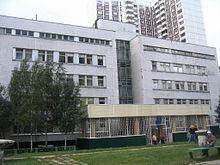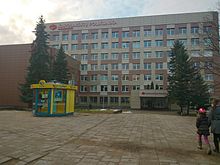

For those considering a more traditional route, Manhas Health Co also provides surgical options. You'll leave this consultation with a clear understanding of the recommended procedures, their benefits, and what to expect during your journey. With a comprehensive range of services, personalized consultations, and state-of-the-art technology, Manhas Health Co. is dedicated to ensuring that your experience is as transformative as the results you seek. Learn more about Expert Botox Injections in New Westminster here. Lastly, Evolve-X leverages a fat reduction technique that selectively targets fat cells, breaking them down and allowing your body to naturally process and eliminate them. Learn more about Botox near me New Westminster here
Deciding to undergo these treatments is a personal choice and involves considering your physical needs and cosmetic desires.
It's a versatile treatment that not only focuses on color correction but also stimulates collagen production. Rest assured, from the moment you start with us, you're in capable hands committed to enhancing your natural beauty and boosting your confidence. You can expect to return to your daily activities shortly after the session ends. Firstly, it's essential to rest and limit your physical activity for a few days. Face sculpting utilizes cutting-edge technology to gently remodel your skin from within, stimulating collagen production for a firmer, more youthful appearance.
From your first consultation, where your skin's needs are attentively listened to, to the selection of advanced aesthetic treatments and non-invasive procedures powered by state-of-the-art technology, every step is designed with your unique beauty and wellness goals in mind. Lastly, on the day of your treatment, come with clean skin, free of any makeup, creams, or oils. Beauty clinic By removing the outermost layers of skin, they unclog pores and prevent future breakouts, making them an effective solution for those battling persistent acne. Choosing Manhas Health Co. for your aesthetic needs ensures you're partnering with experts dedicated to enhancing your confidence through personalized care.
Evolve-X's cutting-edge technology targets specific areas for fat reduction, muscle definition, and skin tightening without requiring weeks or months to start seeing a difference. Sun protection can't be overstated.
The area now known as New Westminster was originally inhabited by Kwantlen First Nation The discovery of gold in BC and the arrival of gold seekers from the south prompted fear amongst the settlers that Americans may invade to take over this land.
It's not just about the visible changes; it's about the joy and newfound confidence each client experiences. This modern approach at Manhas Health Co. targets various concerns, from aesthetic changes to functional improvements, ensuring you feel your best. That's where our cutting-edge treatments come in, designed to target stubborn fat, tone muscles, and tighten skin, giving you a sculpted, more defined silhouette. Furthermore, Manhas Health Co. doesn't stop at just fat reduction.
The science behind this innovation taps into cutting-edge techniques to ensure you're not just seeing temporary improvements but potentially long-lasting results.


And with our team's expertise, you can rest assured that you're in the best hands. Botox for smokers’ lines Whether you're looking to smooth out wrinkles with Botox, add volume with fillers, or explore other rejuvenating options, we're here to design a plan that addresses your concerns and fits your lifestyle. As you witness the visible improvements, you'll feel a renewed sense of confidence that radiates from within. While focusing on recovery and care after your vaginal rejuvenation is essential, it's also important to be aware of the safety concerns and potential risks associated with the procedure.
To ensure your journey towards enhancing your natural beauty is successful, our team at Manhas Health Co. comprises seasoned specialists in aesthetic care. Why choose Manhas Health Co? And it's not just about the legs or underarms; we can treat almost any area of the body where unwanted hair is a concern.
This part of the treatment is meticulous but relatively quick, depending on the area being treated. Lastly, consider adding antioxidants to your skincare routine. It's also important to resist the temptation to scratch or pick at your skin, as this can lead to irritation or even scarring. And the best part?


Whether you're looking to smooth out fine lines, sculpt your body, or boost your skin's radiance, there's something for you. It's essential to complete the recommended course of treatments to achieve the best outcomes.
This boost in collagen means fine lines and wrinkles can become less noticeable, giving you a more rejuvenated appearance. Each treatment is designed with your safety and comfort in mind, ensuring you receive the best care possible. Lastly, you'll be under the watchful eye of trained professionals throughout your session. Morpheus 8 Resurfacing revolutionizes skin rejuvenation by deeply remodeling your skin's underlying structures to restore a more youthful appearance. Choosing Manhas Health Co means opting for a partner who genuinely cares about your wellbeing and satisfaction.
That's why choosing a reputable provider is key. It's a moment worth savoring, and there's no better way to do it than by embracing your newfound confidence. At Manhas Health Co., we believe in unlocking your natural beauty by enhancing what makes you uniquely you. Having prepared your skin as advised, you're now set to experience what unfolds during your dermaplaning or chemical peel treatment at Manhas Health Co.
These usually resolve within a few days. They'll walk you through the Evolve-X technology, explaining how it targets fat reduction, muscle toning, and skin tightening in a single session. They understand that every skin type is different and requires a bespoke approach. Botox for men The result?
You can 1-click nicely format it here: https://alldocs.app/convert-multi-markdown-to-word-docx@ Main model used: gpt-4-turbo-preview. Imagine feeling the transformation as people share their journeys from self-conscious to self-confident. Use a broad-spectrum SPF 30 or higher every day, even when it's cloudy. You can return to your daily activities immediately after.

This article needs additional citations for verification. (March 2012) |

A facial is a family of skin care treatments for the face, including steam, exfoliation (physical and chemical), extraction, creams, lotions, facial masks, peels, and massage. They are normally performed in beauty salons, but are also a common spa treatment. They are used for general skin health as well as for specific skin conditions. Types of facials include European facial,[1] LED light therapy facials, hydrafacials and mini-facials.
There are different kinds of masks (e.g., clay, cactus, cucumber) for different purposes: deep-cleansing, by penetrating the pores; healing acne scars or hyper-pigmentation; brightening, for a gradual illumination of the skin tone. Facial masks also help with anti-aging, acne, crows feet, under eye bags, sagging lids, dark circles, puffiness,[2] and more. Some masks are designed to dry or solidify on the face, almost like plaster; others just remain wet. The green face mask is very essential and benefited.
Masks are removed by either rinsing the face with water, wiping off with a damp cloth, or peeling off of the face. Duration for wearing a mask varies with the type of mask, and manufacturer's usage instructions. The time can range from a few minutes to overnight. Those with sensitive skin are advised to first test out the mask on a small portion of the skin, in order to check for any irritations. Some facial masks are not suited to frequent use. A glycolic mask should not be used more frequently than once a month to avoid the risk of burning the skin.
Masks can be found anywhere from drugstores to department stores and can vary in consistency and form. Setting masks include: clay, which is a thicker consistency, and will draw out impurities (and sometimes, natural oils, too) from the pores; a cream, which stays damp to hydrate the skin; sheet-style, in which a paper mask is dampened with liquid to tone and moisturize the skin; and lastly, a hybrid/clay and cream form that includes small beads for removing dead surface skin cells. Non-setting facial masks include warm oil and paraffin wax masks. These different forms are made to suit different skin types (e.g., oily or dry), and different skincare goals or needs (e.g., moisturizing, cleansing, exfoliating). Clay and mud masks suit oily and some "combination" skin types,[3] while cream-based masks tend to suit dry and sensitive skin types. There are also peel-off masks which are used to remove thin layers of dead skin cells and dirt.[4]

A clinic (or outpatient clinic or ambulatory care clinic) is a health facility that is primarily focused on the care of outpatients. Clinics can be privately operated or publicly managed and funded. They typically cover the primary care needs of populations in local communities, in contrast to larger hospitals which offer more specialized treatments and admit inpatients for overnight stays.
Most commonly, the English word clinic refers to a general practice, run by one or more general practitioners offering small therapeutic treatments, but it can also mean a specialist clinic. Some clinics retain the name "clinic" even while growing into institutions as large as major hospitals or becoming associated with a hospital or medical school.

The word clinic derives from Ancient Greek κλίνειν klinein meaning to slope, lean or recline. Hence κλίνη klinē is a couch or bed and κλινικός klinikos is a physician who visits his patients in their beds.[1] In Latin, this became clīnicus.[2][3]
An early use of the word clinic was "one who receives baptism on a sick bed".[4]

Clinics are often associated with a general medical practice run by one or several general practitioners. Other types of clinics are run by the type of specialist associated with that type: physical therapy clinics by physiotherapists and psychology clinics by clinical psychologists, and so on for each health profession. (This can even hold true for certain services outside the medical field: for example, legal clinics are run by lawyers.)
Some clinics are operated in-house by employers, government organizations, or hospitals, and some clinical services are outsourced to private corporations which specialize in providing health services. In China, for example, owners of such clinics do not have formal medical education. There were 659,596 village clinics in China in 2011.[5]
Health care in India, China, Russia and Africa is provided to those regions' vast rural areas by mobile health clinics or roadside dispensaries, some of which integrate traditional medicine. In India these traditional clinics provide ayurvedic medicine and unani herbal medical practice. In each of these countries, traditional medicine tends to be a hereditary practice.

The function of clinics differs from country to country. For instance, a local general practice run by a single general practitioner provides primary health care and is usually run as a for-profit business by the owner, whereas a government-run specialist clinic may provide subsidized or specialized[dubious – discuss] health care.
Some clinics serve as a place for people with injuries or illnesses to be seen by a triage nurse or other health worker. In these clinics, the injury or illness may not be serious enough to require a visit to an emergency room (ER), but the person can be transferred to one if needed.
Treatment at these clinics is often less expensive than it would be at a casualty department. Also, unlike an ER these clinics are often not open on a 24/7/365 basis. They sometimes have access to diagnostic equipment such as X-ray machines, especially if the clinic is part of a larger facility. Doctors at such clinics can often refer patients to specialists if the need arises.[6]

Large outpatient clinics vary in size, but can be as large as hospitals.
Typical large outpatient clinics house general medical practitioners (GPs) such as doctors and nurses to provide ambulatory care and some acute care services but lack the major surgical and pre- and post-operative care facilities commonly associated with hospitals.

Besides GPs, if a clinic is a polyclinic, it can house outpatient departments of some medical specialties, such as gynecology, dermatology, ophthalmology, otolaryngology, neurology, pulmonology, cardiology, and endocrinology. In some university cities, polyclinics contain outpatient departments for the entire teaching hospital in one building.

Large outpatient clinics are a common type of healthcare facility in many countries, including France, Germany (long tradition), Switzerland, and most of the countries of Central and Eastern Europe (often using a mixed Soviet-German model), as well as in former Soviet republics such as Russia and Ukraine;[7] and in many countries across Asia and Africa.[8]
In Europe, especially in the Central and Eastern Europe, bigger outpatient health centers, commonly in cities and towns, are called policlinics (derived from the word polis, not from poly-).
Recent[when?] Russian governments have attempted to replace the policlinic model introduced during Soviet times with a more western model. However, this has failed.[9]
In the Czech Republic, many policlinics were privatized or leasehold and decentralized in the post-communist era: some of them are just lessors and coordinators of a healthcare provided by private doctor's offices in the policlinic building.[10]
India has also set up huge numbers of polyclinics for former defense personnel. The network envisages 426 polyclinics in 343 districts of the country which will benefit about 33 lakh (3.3 million) ex-servicemen residing in remote and far-flung areas.[11]
Policlinics are also the backbone of Cuba's primary care system and have been credited with a role in improving that nation's health indicators.[12]


Providing health services through mobile clinics provides accessible healthcare services to these remote areas that have yet to make their way in the politicized space. For example, mobile clinics have proved helpful in dealing with new settlement patterns in Costa Rica. Before foreign aid organizations or the state government became involved in healthcare, Costa Rica's people managed their own health maintenance and protection.[13] People relied on various socio-cultural adaptations and remedies to prevent illnesses, such as personal hygiene and settlement patterns.[13] When new settlements that sprang up along the coast became "artificial" communities, and due to lack of traditional home healing practices here, alternative methods such as mobile clinics had to be implemented in these communities for the protection and prevention of diseases.[13]
A study done in rural Namibia revealed the health changes of orphans, vulnerable children and non-vulnerable children (OVC) visiting a mobile clinic where health facilities are far from the remote villages.[14] Over 6 months, information on immunization status, diagnosis of anemia, skin and intestinal disorders, nutrition, dental disorders was collected and showed that visits to mobile clinics improved the overall health of children that visited regularly. It concluded that specified "planning of these programs in areas with similarly identified barriers may help correct the health disparities among Namibian OVC and could be a first step in improving child morbidity and mortality in difficult-to-reach rural areas."[14]

Food supplementation in the context of routine mobile clinic visits also shows to have improved the nutritional status of children, and it needs further exploration as a way to reduce childhood malnutrition in resource-scarce areas. A cross-sectional study focussed on comparing acute and chronic undernutrition rates prior to and after a food-supplementation program as an adjunct to routine health care for children of migrant workers residing in rural communities in the Dominican Republic.[15] Rates of chronic undernutrition decreased from 33% to 18% after the initiation of the food-supplementation program and shows that the community members attending the mobile clinics are not just passively receiving the information but are incorporating it and helping keep their children nourished.[15]

There are many different types of clinics providing outpatient services. Such clinics may be public (government-funded) or private medical practices.
cite book: |website= ignored (help)
Yes, Evolve-X treatments can help improve skin conditions like cellulite or stretch marks. They use advanced technology to target and remodel skin, reducing the appearance of these issues and enhancing your skin's texture.
You might experience redness, swelling, or bruising after aesthetic treatments. There's also a risk of infection or unsatisfactory results. Always ensure the clinic's credibility and discuss potential side effects with your provider beforehand.
Yes, there are age restrictions and certain health conditions that might disqualify you from Evolve-X treatments. It's best to consult with a professional to determine if you're a suitable candidate based on your specific situation.